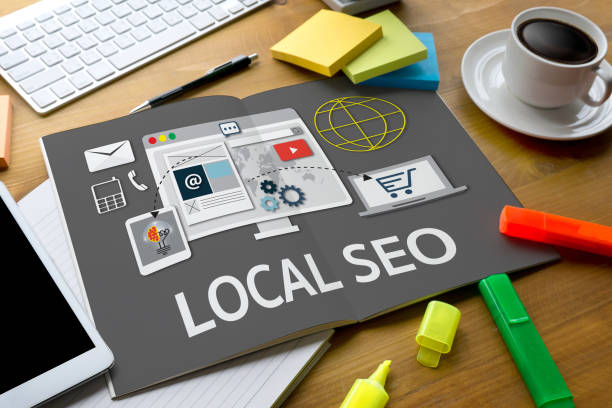The modern digital economy just can’t do without an online presence. Businesses that want to grow and reach the larger crowd resort to selling their products and services on e-commerce platforms. But launching a website is the least one can do. For successful online sales: safe and scalable- expert e-commerce website development is a must. Now, this is what makes all the difference when we employ professional help.
1. First Impressions Matter
If people are to interact with your business someway, phone calls to sales, the site would be one of the initial touchpoints. Visitors arrive on your page, observe it for less than a few seconds, and decide whether to remain there. In the e-commerce websites, looking excellent instills trust in consumers, with the confidence that their decision to shop via the website is held up by the brand identity. Here is what a professional will do: They will balance functionality and attractiveness so that visitors can enjoy a pleasurable experience somewhat immediately upon landing there.
2. Customized Solutions Over Templates
While drag-and-drop website builders can help you get a quick setup with template usage, it is commonly a trade-off for those features. These types of websites do not scale well and are often not unique or even the bare minimum of SEO. Such custom-built software solutions allow their professionals to make solutions run away in short courses of time on your business parameters. Hence your website is designed to meet your specific goals, products, audience, and even workflow, which enhances performance and flexibility.
3. Mobile Optimization Is a Must
More than 50% of web traffic worldwide is generated from mobile devices. If your e-commerce site is not mobile compatible or optimized for smartphones and tablets, then you will be losing a big market share. Experienced developers make your site responsive, whereby it automatically adjusts to varying screen sizes without compromising the functionality and speed of the site. This enriches the user experience on the site and consequently improves search engine ranking.
4. Enhanced Security Features
With cyber threats swirling above all aspects of e-commerce-theft of data, payment information, personal information-an e-commerce professionals take into serious consideration the aspect of security from day one. Thus, they incorporate SSL encryption, secure payment gateways, firewalls, and plenty of other security protocols to warrant protection of your site. The professionals also keep updating the security measures and conduct security audits at regular intervals. The objective is to ensure the security throughout so that if breached, your reputation and money are the least affected.
5. Improved Site Performance and Speed
The slow speed of a website acts as an annoyance for users and becomes a reason for cart abandonment. In e-commerce, it’s all-about-the-second. Designers would have coded with the best practices for optimization, caching, and lightweight frameworks for load times to be as fast as possible. Also, rigorous performance testing would have been done to look for and identify any bottlenecking in the site so that action could have been taken well before the actual load of the site strikes; thus, your site ends up performing well even when the loads are heavy, for example, during the holiday sales.
6. SEO and Digital Marketing Integration
If it is not able to find, there might be no sales made through it. Professional e-commerce developers create your site considering SEO practices with its structure, speed, and mobile-friendliness aspects. Also, this set-up facilitates the ease of integrating digital-marketing tools, such as email-marketing platforms, analytics-software, and social-media tracking, allowing you to run data-driven campaigns effectively.
7. Scalable and Future-Ready Design
Usually, some businesses begin with very small operations, with the intent to grow. A professionally designed website is created with scalability in mind. Perhaps you plan to add more products or maybe venture into new regions and third-party logistics outsourcing. The idea is that with enhancements prepared in mind by the professionals during the design, your site should require no major upgrade. This ensures an easy way out for future proofing, saving time, energy, and money.
8. Better Checkout and Payment Experience
Abandonment of shopping carts is one of the most severe challenges in e-commerce. An annoying or unsafe checkout procedure can be a turn-off for buyers. Professionals ensure that the checkout is intuitive, fast, and secure. They can build in many different payment method options, guest checkouts, and real-time shipping calculators, all of which contribute to a smooth user experience and higher conversion rate.
9. Ongoing Support and Maintenance
Launching your e-commerce website is just the beginning. Regular maintenance is required to fix bugs, update plugins or features, and ensure everything runs smoothly. Professional developers offer post-launch support and maintenance services to help you stay ahead of issues, ensure compatibility with new technologies, and provide technical guidance when you need it.
10. Competitive Edge in a Crowded Market
In saturated online marketplaces, standing out becomes a primary consideration. A well-appearing front through an eCommerce site for your firm gives a great impression. A message is being sent that you are serious about your products and your customers. Whilst someone is looking at the competition, the lack of professional look and feel of their site may be the factor the user goes with your competitors.
Final Thoughts
If you do not have the proper website, you may not succeed in e-commerce. Professionals strive to make sure that the online store looks good, is safe, works well, and can grow. The investment toward a professional e-commerce organization will be the best one for you to make in the long run, irrespective of whether you are starting up or upgrading your current platform.










